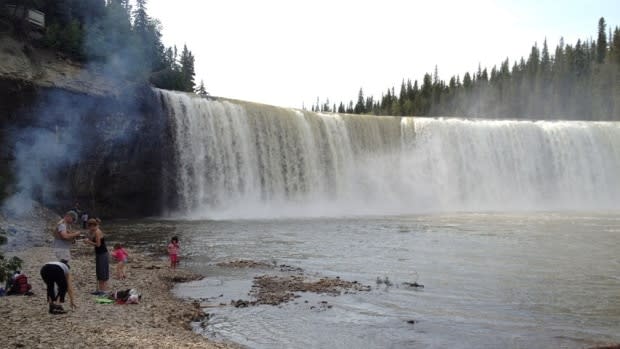Take a staycation, but 'stay on our game,' says N.W.T. top doctor
As public health restrictions due to COVID-19 ease, the Northwest Territories' chief public health officer is encouraging residents to consider a holiday this summer in their own backyards.
"I wholeheartedly support staycations," said Dr. Kami Kandola during a teleconference Wednesday. "Visit the regional hubs ... enjoy this 1.2-million square kilometres of amazing land that we have."
Kandola added that her team is working on allowing public and private campgrounds to be used in the next phase of lifting COVID-19 restrictions.

While public and private campgrounds are still not allowed to open for overnight use, there is nothing stopping northerners from camping in the backcountry or going out on the land to their own camps — an activity the territorial and federal governments have encouraged for its physical-distancing benefits.
Kandola said people should be aware of the needs of small communities, which may be sensitive to people from larger areas visiting when the pandemic is still a risk. She said that potential visitors should check ahead of time if their presence would be welcomed.
'COVID-19 is unforgiving'
As the sun shines and people begin to spend time with friends, however, Kandola is also once again calling on residents to "stay on our game" and avoid the temptation "to get comfortable" as the weeks pass since the most recent case of COVID-19 was reported in the territory.
"COVID-19 is unforgiving," Kandola said.
Since the ban on non-essential travel into the territory, territorial residents and essential workers have still had to come the Northwest Territories from other jurisdictions; 332 people came into the territory in the past week, Kandola noted. Many of those travellers come from places with active community spread.

"We cannot eliminate that risk of COVID[-19] introduction," said Kandola. "We can only reduce it."
Kandola added that people should wear non-medical masks in public to protect against that spread. And she said people should think ahead and make sure they have adequate supplies should a second wave of the pandemic strike. She said supply chains are expected to "stay strained" in the near future.
As of May 27, it has been 53 days since the last case of COVID-19 was reported in the Northwest Territories. That person recovered 40 days ago.


